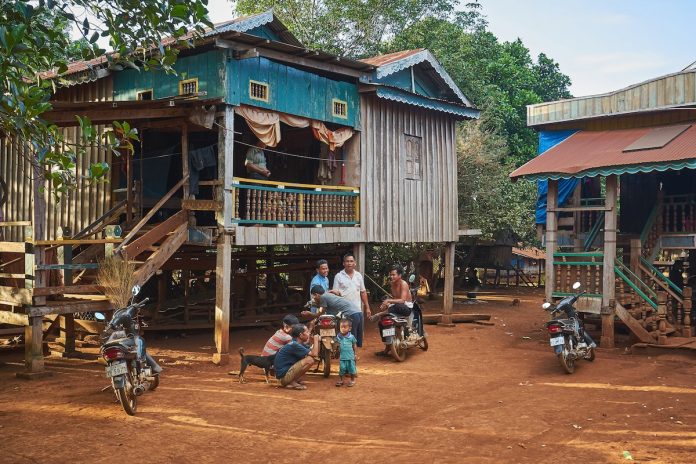Debt relief measures by micro-loan providers in Cambodia are failing to alleviate the serious financial burdens on indebted families affected by the new coronavirus pandemic, a leading rights group has said.
New York-based Human Rights Watch said in a statement that such indebted families risk having to sell land and housing they depend on to survive.
The rights group called on the Cambodian government and the National Bank of Cambodia to suspend debt collection.
“Many Cambodians fear losing their land more than catching the coronavirus because they can’t pay back their loans and the government has done little to help them,” said Phil Robertson, HRW’s deputy Asia director.
“The Cambodian government should immediately order a freeze on debt collection and interest accruals of those harmed by the pandemic and hold financial institutions that fail to comply accountable,” Robertson said.
The rights group said that government’s response has been insufficient to protect borrowers and violates their rights to an adequate standard of living, notably access to adequate housing. The micro-loan providers are likewise failing in their human rights responsibilities to borrowers.
HRW said that Cambodians hold the world’s highest average amount of microfinance institution loans, totaling US$3,804 per capita. While the National Bank of Cambodia is the licensing and regulating authority of micro-loan providers, it has never issued strong consumer protection regulations to protect borrowers from unethical lending practices.
The problem of indebtedness in Cambodia is longstanding and has been acknowledged by the government itself.
Cambodia’s financial institutions recognized early on that the pandemic would create problems for many borrowers, HRW said. On March 27, the National Bank of Cambodia issued a “Circular on Loan Restructuring during the Impact of the Covid-19 Epidemic” containing non-binding recommendations to all financial institutions that they should “mitigate the burden of borrowers who are facing difficulty making [loan] repayments due to a drop in their main income.” The bank encouraged financial institutions to “pay attention to clients who are facing actual impact,” particularly workers in the garment sector.
But, HRW said that the circular does not provide interpretative guidance and leaves it to financial institutions to determine which borrowers should be deemed to be “facing financial difficulties.” The result is financial institutions have arbitrary and unfettered discretionary authority to grant or deny debt relief.
“Without a moratorium on debt collection, indebted Cambodians will have little choice but to take on more debt from micro-loan providers,” Robertson said. “The government should immediately end coercive practices that result in people losing land and housing, and effectively regulate microfinance lending to ensure financial institutions act to benefit their clients rather than plunge them further into debt.”









